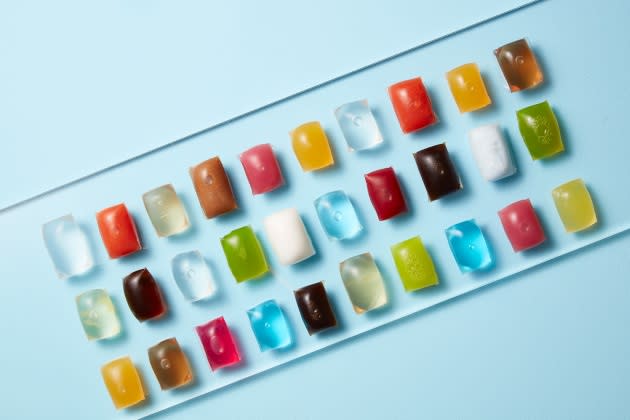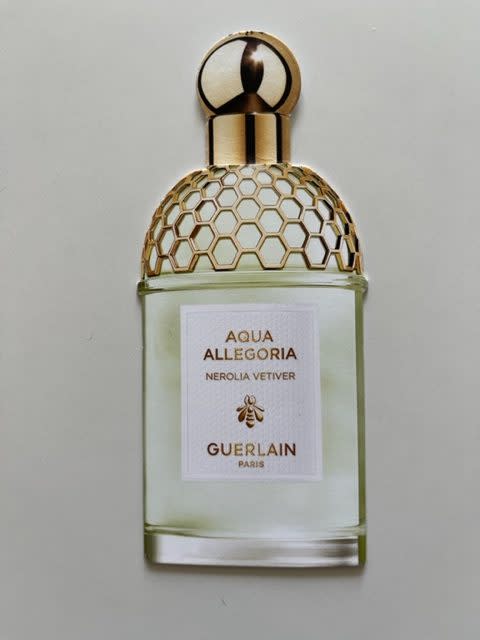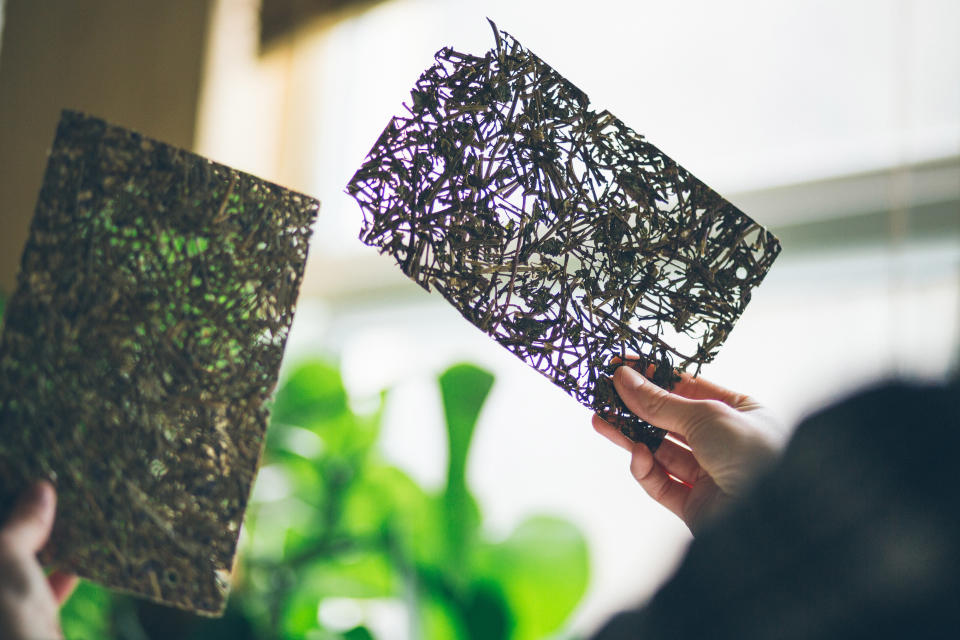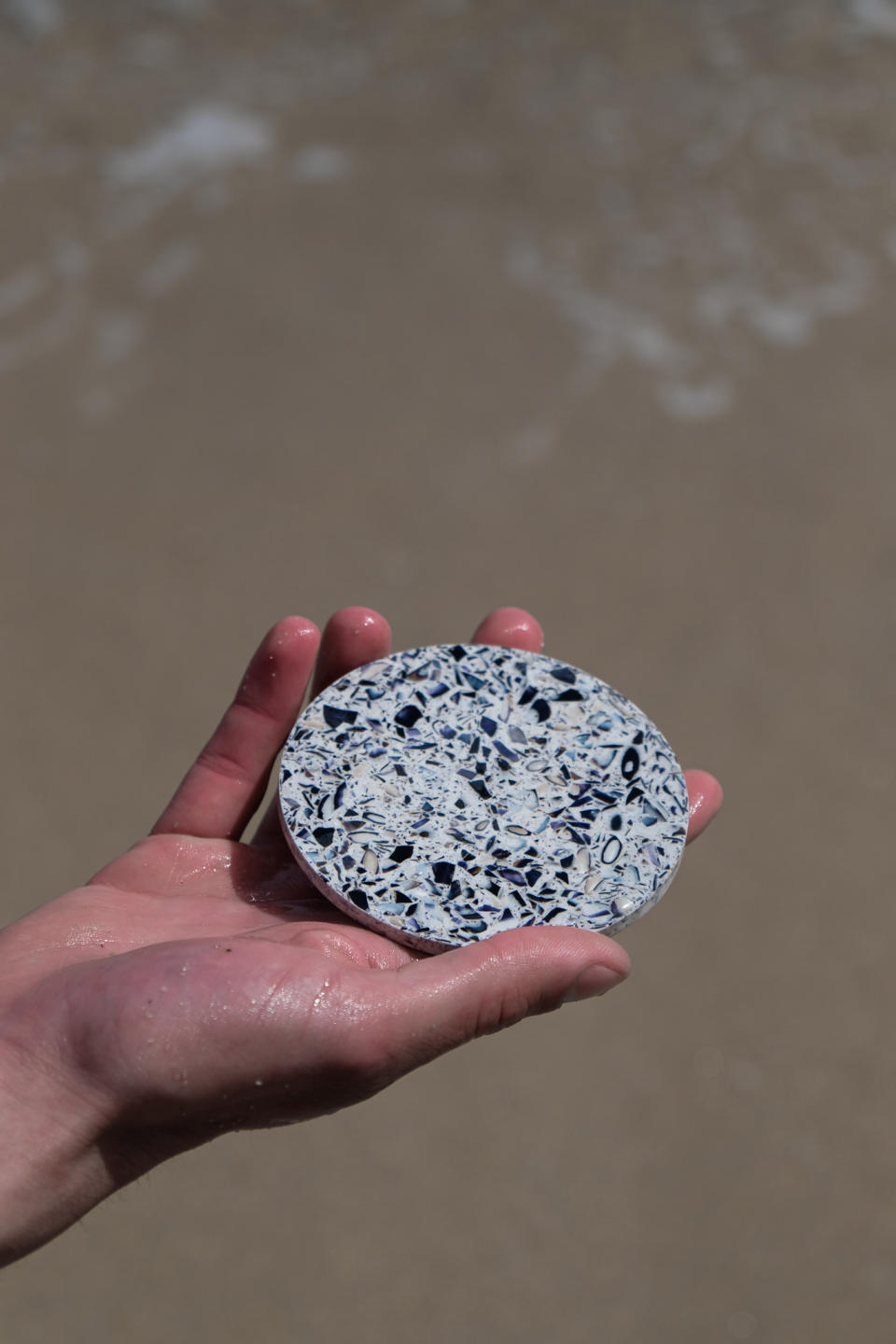Innovative Eco-friendly Packaging and Sampling Solutions

PARIS — Remember when cosmetics packaging only came in plastic or glass, and outer cartons were just of cardboard? That wasn’t too long ago, but now, eco-friendly solutions, for sampling, too, are using materials such as seashells, seaweed, wildflowers and paper. Here is a look at some of those innovations.
Notpla
Notpla’s tag line reads: “We make packaging disappear.” The sustainable packaging start-up aims to offer an alternative to single-use plastic.
More from WWD
The company, which was created in 2014 by Rodrigo Garcia Gonzalez and Pierre Paslier under the name Skipping Rocks Lab, sprang from a student project.
“They were really inspired by nature and how it can encapsulate liquids,” explained Margaux Deguerre, marketing and communication lead at Notpla, who gave as an example a cherry tomato. “They tried to replicate that.”
The company’s solutions today are made from a material of the same name, comprised of seaweed and plants that biodegrade naturally in weeks.
Notpla kicked off with Ooho, an edible and fully biodegradable sachet, created for the food industry.
The company partnered with plenty of sports events and festivals, and has branched out subsequently with the likes of coating enabling food containers to fully biodegrade; Notpla Paper, based on seaweed fiber; Notpla Pipettes, which can encapsulate oil and Notpla Pearls. The latter — good, for instance, for a single dose of shampoo — can dissolve in hot or cold water.
“Now, we are really interested in the cosmetics industry, as well,” Deguerre said.
In December 2021, Notpla closed a 10 million-pound Series A financing round.
iD Scent
The company iD Scent conceives, manufacturers and commercializes olfactory discovery experiences, with a stated aim to shake up and modernize the sampling market.
The group recently launched a new technology called Scentest, which can be used to make fragrance sampling out of paper that is wholly recyclable. The process uses air compression to integrate a scent into paper fibers, resulting in the perfume (using no alcohol) able to emanate from the sample for several months to years.
One sample iD Scent made was for Guerlain’s Aqua Allegoria Nerolia Vetiver. It comes in the shape and with an image of the fragrance bottle. The sample’s cap-like top part can be pulled upward to reveal a white stick-like sampler, which is impregnated with the fragrance. That may be used more than 100 times.
ID Scent, which launched a decade ago, is designed for such samples to be shared among people. So it’s not a traditional one-shot sample in any respect.
Bron, France-based iD Scent produces in a sustainably minded way. Most of its solutions are made in France, with paper certified recyclable and eco-responsible.

Courtesy of Jennifer Weil
Organoid Technologies GmbH
Organoid Technologies GmbH’s innovation allows for surfaces to keep their haptic, optic and olfactive properties.
“You can see, touch and smell the rose petals, for instance, on our rose petal surface,” explained Alp Behar, country sales director at the company for France, Belgium, Luxembourg, Switzerland and Israel.
Organoid was founded in Fliess, Austria, in 2018 and produces all of its products in the Tyrol mountains of the country in a carbon-neutral manner.
Behar explained Organoid can use byproducts of cosmetics — “so these are immense storytelling and standing-out opportunities.” Indirect applications for the industry might be at point of sale and in merchandising, display furniture surfaces and product packaging.
The company has also created a subsidiary for NatPad, a transdermal patch using natural moss as a reservoir for an active material, such as skin care or essential oils. A NatPad patch can be applied on a corresponding Organoid surface. So, for instance, a surface comprised of coffee might be created for a patch containing caffeine.

Courtesy of From Organoid Technologies
Malàkio
Malàkio collects seafood shells directly from restaurants, then they are crushed and mixed with a natural binder. The production process is based on low-tech dynamics.
“So it’s very low carbon-impact,” explained Hugo Kermarrec, a cofounder of Malàko.
The brand started by using the resulting material for tableware and decorative objects. Since then, it’s expanded to make furniture and is now working on some cosmetics packaging projects.
“We are prototyping it,” he said.
Kermarrec and his colleagues are working on making new shapes. Due to the porosity of the material Malàkio produces, for the beauty industry its creations work best with creams, powders and water-based formulas.
Muscles, oysters and scallops have shells that translate into various colors.
“We can also personalize our product with [natural] pigmentation,” Kermarrec added.
Malàkio, which is now based in Nantes, France, was launched in Brittany in September 2020.

Courtesy of Malàkio
Sign up for WWD's Newsletter. For the latest news, follow us on Twitter, Facebook, and Instagram.

